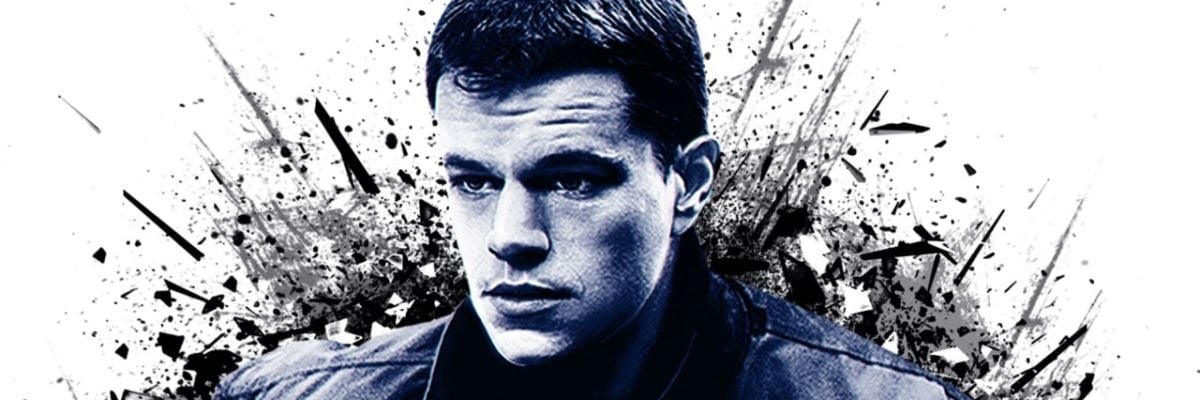
The Bourne Identity is a great source for understanding the virtue of prudence.
As is always necessary with movies, a few caveats:
Although only the villains do so, God’s name is taken in vain. It is implied that Jason Bourne fornicates at one point in the movie. My opinion is that this is an example of a failure by the directors to understand their character. More could be said on this, but I am a partisan of the Jason Bourne movies, and it would be too much of a side track. Finally, there are serious questions about the genre of film itself, such as those raised by the great Catholic philosopher Marshall McLuhan, who believed that all movies, by their nature, even and especially movies with “good messages” in their plots, act subconsciously and perhaps even insidiously on viewers.
These are all important objections that Catholics must continue to study and be aware of. However, such objections do not take away from the fact that The Bourne Identity is a great action movie, and not only in the commonplace sense.
For example, Aristotle, in his Poetics, understands “action” as the working out, by flesh-and-blood characters, of moral principles. The Bourne Identity is a great action movie in this sense because it mimics redemption and even growth in sanctity.
The movie begins with water and the sign of the cross, as Bourne is found floating in the Mediterranean Sea, all but dead, by old-fashioned Italian fishermen. It ends with Bourne definitively rejecting his past evil life. In between, he is pursued by Treadstone, a nefarious organization within the CIA. Outgunned and outmanned, an amnesiac facing the knowledge and technology of Big Brother, he survives and thrives in constant peril. And he does so only because he is virtuous and practices virtue.
Furthermore, he illustrates every single one of the “integral” parts of the virtue of prudence listed by St. Thomas in Question 48 of the second part of the second book of the Summa Theologiae. Buckle up: The handling is good, but the Angelic Doctor might get airborne at a few points as we proceed.
As a philosopher and poet, St. Thomas presents both a definition and a word-image for these integral parts. His definition: “that which is required to be involved for a perfect, that is complete, act of virtue.” His image concretizes this definition, comparing “parts” of virtue to the necessary parts of a house: foundation, walls, and roof. A house missing any of these is not a house, or at least not a complete house. These integral parts of prudence are memory, understanding, docility, skillfulness, reason, foresight, circumspection, and caution.
Of all the parts listed here, memory might seem the most problematic for an amnesiac protagonist. How can a person in search of his identity be said to have memory?
Thomas’s definition illuminates here: Memory is “cognition,” practical knowledge, of the past. Bourne may not know his past anymore, but he certainly knows how to use it. He applies the many finely honed skills he has learned as a super-soldier to everything from high-speed evasion by car to cold-reading all the people he sees at a roadside stop.
In the most important sense, he remembers himself insofar as he pursues the good. Although the viewer does not discover this until the end of the movie, Jason’s last choice before he lost his memory was a decisive rejection of the evil path he had been on.
Understanding brings us from memory, or knowledge of the past, to knowledge of the present. According to St. Thomas, this means particularly knowledge of two things: the necessary and the contingent.
Perhaps the best example of Bourne’s use of understanding is his confrontation with the black ops agent known as “the Professor.” Bourne is at an enormous disadvantage: the Professor has a superb rifle, good cover, and a perfect view. Armed with only a shotgun, Bourne uses his knowledge of contingency (that a big enough diversion will distract even the best-trained fighter) and of the necessary (that a propane gas tank explosion is a pretty big diversion) to begin evening the odds.
He would have started too late were it not for his shrewdness in realizing that the absence of a family dog was a sign of danger.
For Aquinas, there are two ways of acquiring the knowledge necessary for a prudent act. One of these is variously called discovery, eustochia, or a fortunate conjecture. This is exactly what shrewdness is related to—the uncanny human ability that almost all of us have experienced at least once or twice in our lives, which allows us to evaluate and respond to a situation faster than reasoning on its own would justify. Of course, one could object that it is just a “trained instinct,” but these are parts of a virtue, after all. Like any strength, virtue gets bigger, so to speak, by training it!
The other mode of learning is teaching. Docility is all about being more or less easily taught. Thomas points out that the number of things that potentially must be learned is infinite; therefore, a truly prudent person will be not only ready, but the most ready to receive instruction in whatever he does not know. Bourne is a completely docile competent person, as seen when he concocts an elaborate scheme for obtaining records at a hotel, only for his friend to collect them in a much simpler manner.
Moving onto reasoning, another part of Bourne’s internal armory is evidenced when he locates the Treadstone safehouse in Paris.
The syllogism goes this way:
Major premise: A Treadstone official’s car will eventually arrive at the Treadstone safehouse.
Minor Premise: This (Bourne determines) is the Treadstone official’s car.
Conclusion: It will eventually arrive at the safehouse.
PS: With Bourne’s tracking device attached to it.
The last three parts are about the application of reason to action, and these are caution, circumspection, and foresight. One of the most memorable illustrations of caution, the accurate appreciation of danger, is the classic scene near the beginning of the movie, in which Bourne enters the U.S. embassy in Zurich only to be stopped by security. Though his fighting abilities are impressive, their effectiveness is possible only as a result of lightning-quick evaluation of each potential threat. Circumspection, the general knowledge of one’s surroundings and the possibilities and limitations they afford, is the whole story of the next two minutes, as Bourne avoids further dangers, listens in on the real-time directions and movements of his adversaries, and makes a final escape from the building in the least dangerous way possible. Of course, this still happens to be incredibly dangerous, which reflects the paradoxical nature of the life of virtue.
This point, the dangerous action God sometimes demands we undertake and live, is a good segue to foresight, the way in which prudence orders us toward our objective. For Bourne, this means realizing that he must confront his former bosses; his new direction in life means forswearing cold-blooded killing forever, and this requires him to learn more about his origins, which he can do only by a direct confrontation at his enemies’ headquarters.
Bourne’s unflinching acceptance of this reality, his calm pursuit of the difficult ways and means to arrange this confrontation, his willingness to risk his life because there is no other way to live it well—all underline the fact that foresight doesn’t always mean doing the safe thing. One can back this up with both the highest theological principles, such as the Lord Jesus’ statement that a man must lose his life in order to save it, and with the humblest common sense.
Understanding the Bourne Identity as truly an action movie—that is, a movie that reveals the deepest causes of action, which are the virtues—enables further insights. One of them is the astonishing and encouraging point that evil is fundamentally imprudent. It is stupid. Treadstone has an enormous advantage over Jason Bourne in terms of material resources and manpower. It is ostensibly more “legal,” and there not only a power imbalance, but also a knowledge imbalance between the organization and the fugitive. Like modern businesses of marketing and insurance, Treadstone functions on knowing more about us than we do. Does the very existence of imbalances and inequity in society preclude the possibility of virtue?
Bourne’s victory over Treadstone is a victory that occurs only because he is a virtuous man. Whereas he was simply a part of the machinery before, the turn to virtue allows him to overcome it.
Jason Bourne’s adventure in The Bourne Identity might just seem to be one exploit after another, but that would be like looking at the life of a saint as a disconnected series of good actions. The virtues—and the queen of the cardinal virtues itself, prudence—are the vital core of Bourne’s new life.



